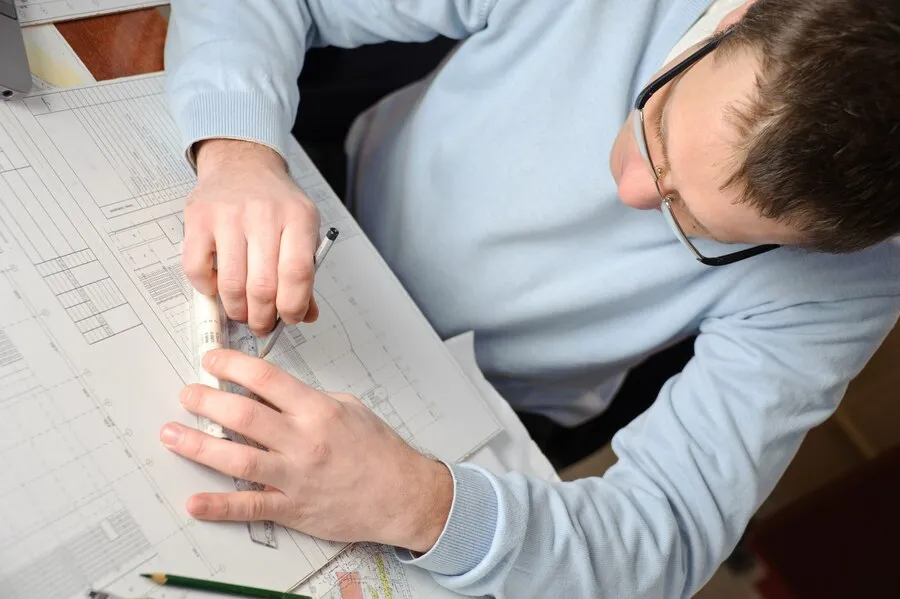Table of Contents
Key Takeaways
- Understand the importance of experience and specialization in architecture.
- Identify the value of communication and rapport in client-architect relationships.
- Learn how to assess an architect’s portfolio and approach to design.
- Recognize the significance of budget management and transparency in architectural projects.
Introduction
The success of your building or remodeling project depends on your choice of architect. In addition to designing the space, an architect ensures that your vision is realized in an aesthetically pleasing and helpful way. Knowing what to look for is crucial to making an informed choice because there are many architects. When selecting an architect, this article will walk you through the essential things to look for.
Experience and Specialization
One of the first factors to consider when selecting an architect is their experience and specialization. An experienced architect’s knowledge and expertise can significantly impact your project. Look for architects with a strong track record in projects similar to yours, whether you are planning a residential, commercial, or public space.
If you are based in a specific location, such as Denver, hiring a Denver architect with experience handling local projects can be advantageous. Such architects will better understand the area’s zoning laws, building codes, and environmental considerations.
Communication and Rapport
The ability to communicate effectively with your architect is vital. A successful architectural project relies heavily on clear and open communication. When meeting potential architects, assess their willingness to listen to your ideas and concerns. A good architect should articulate their vision, value your input, and make you an integral part of the decision-making process.
Establishing rapport with your architect can make the journey more enjoyable and productive. You want to work with someone you feel comfortable sharing your thoughts with, as this will foster a collaborative environment where your project ideas can genuinely thrive.
Portfolio and Design Approach
A portfolio provides insight into an architect’s abilities and style. Reviewing past projects can give you a sense of their design approach and whether it aligns with your aesthetic preferences. Look for variety and creativity in their work, indicating their ability to adapt to different client needs and innovate when necessary.
Consider discussing their design philosophy during your conversations. Are they inclined towards modern, minimalist designs or specialize in traditional styles? Understanding their approach will help you decide if their vision matches your project goals.
Also Read: Preparing for Winter: Effective Ice Melting Techniques and Tips
Budget Management
Budgeting is critical to any construction project; managing it wisely can prevent unexpected expenses. When evaluating architects, inquire about their experience working within a similar budget. A good architect should provide realistic cost estimates and be transparent about potential overruns.
Discuss your budget constraints openly and explore how they plan to optimize resources to meet your financial limits. Transparency in budget management ensures that both parties have aligned expectations, minimizing financial stress throughout the project lifecycle.
Technical Expertise and Problem-Solving Skills
Technical expertise is another crucial factor to consider. Architects should possess a strong understanding of construction materials, structural integrity, and building technologies. Their problem-solving skills are often tested as they balance design aesthetics with practical considerations like functionality and safety.
Ask potential architects how they approach challenges during a project. Their ability to devise creative solutions and adapt to changing circumstances can significantly impact the project’s success. A skilled architect will foresee potential obstacles and proactively address them to keep your project on track.
Client References and Testimonials
Finally, seek client references and testimonials to gain insights into an architect’s professionalism and work ethic. Previous clients can provide valuable feedback, highlighting strengths or areas for improvement. This information will help you make a well-rounded assessment of an architect’s suitability for your project.
Reputable architects often have a list of satisfied clients willing to vouch for their work. Pay attention to comments regarding their ability to meet deadlines, manage budgets, and maintain transparent communication throughout the project.
Final Thoughts
Choosing the right architect requires careful consideration of various factors, such as experience, communication skills, design approach, and budget management. Examining these factors will help you identify an architect who can realize your vision. A successful partnership with the right architect can lead to a harmonious, functional, and beautiful space tailored to your needs.




